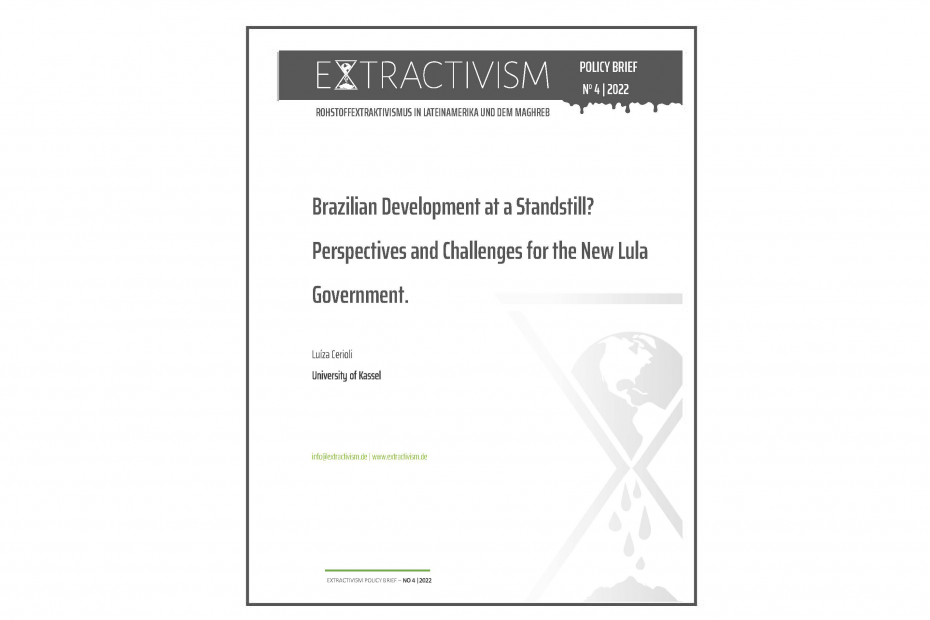This policy brief argues that
- Brazil has a standstill development syndrome as its development path swayed from extractivism to industrialization and back to extractivism.
- The prioritization of environmental protection and indigenous rights is the most significant novelty for Lula in 2022 compared to his previous governments.
- Lula’s third mandate will not be a left-wing government due to the broadness of the coalition.
- Lula aims to improve people’s livelihoods and reduce poverty by promoting industrialization. Therefore, international actors should support and enable access to technology and know-how – mainly focusing on green transition.
Abstract:
Brazil once again elected Lula, who promised an alternative to the predatory development model while creating socio-economic growth and improving people’s livelihood through a green transition. This policy brief argues that Brazil is an emerging economy with arrested development syndrome, choosing different chosen development trajectories that swayed from the extractivism model to industrialization and back to extractivism. In his previous governments, due to the 2000s commodities boom, Lula began pursuing a neoextractivism development model, in which the rents from exporting primary resources were used to promote social policies. By the time President Jair Bolsonaro reached power, Brazil was one of the world’s leading food exporters. Moreover, he pushed the extractivist frontier further, decoupling the rents from social policies and beneficiating agribusiness and financial elites. This policy brief shows how, with Lula back in power in a much more domestic combative context than before, Brazil is at a crossroads, searching for ways to combine a new political configuration while tackling another turn on its development path.
After four years of a confrontationist, denialist, and neoliberal government, Lula promises to reduce poverty, eliminate food insecurity, build infrastructure, re-industrialize, and restore the Brazilian role in multilateral politics. He also aims to take a stronghold against illegal mining and fight climate change while supporting indigenous communities and family farmers. Therefore, this Policy Brief delves into Brazil’s challenges ahead concerning development and energy transition, presenting the country’s shifting development paths, explaining its relationship with neoextractivism, discussing the emergence of Bolsonarism and outlining Lula’s promises and limitations. On the one hand, it argues that promoting environmental protection is the most significant – and positive – novelty in Lula’s position compared to his previous governments. However, on the other hand, the analysis warns for caution, as the broad coalition required to defeat Bolsonaro means the new government will be very pragmatic, without space for making the needed reforms or more radical transitions.
http://dx.doi.org/doi:10.17170/kobra-202308148614
Download the Extractivism.de Policy Brief 04/2022 here (GERMAN)
Download the Extractivism.de Policy Brief 04/2022 here (ENGLISH)
Download the Extractivism.de Policy Brief 04/2022 here (SPANISH)
Author: Luíza Cerioli, University of Kassel



